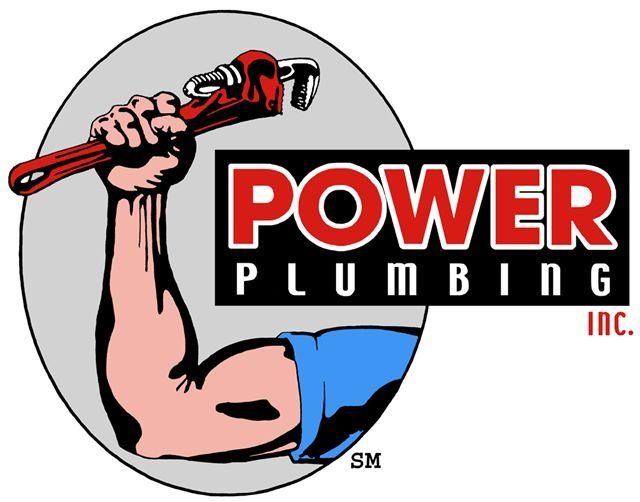Green Plumbing | Power Plumbing Inc.
- By Admin
- •
- 17 Jul, 2024
In an era where environmental conservation is paramount, green plumbing practices have emerged as a critical strategy for both saving water and protecting our planet. By integrating sustainable methods and technology into traditional plumbing, homeowners can reduce their water consumption and energy use significantly. This guide delves into the foundational principles of green plumbing and highlights steps everyone can take to make their homes more eco-friendly.
Understanding Green Plumbing
Green plumbing involves sustainable practices and eco-friendly technologies to optimize water usage in homes. This approach aims to minimize water waste, reduce energy consumption, and promote the conservation of natural resources. Plumbers play a crucial role in helping homeowners adopt these practices by recommending and installing water-saving fixtures, repairing leaks, and optimizing plumbing systems for efficiency.
High-Efficiency Fixtures and Appliances
One of the most effective ways to save water is by installing high-efficiency fixtures and appliances. For instance, low-flow showerheads, faucets, and toilets are designed to use significantly less water without compromising performance. These fixtures can reduce water consumption, offering substantial savings over time. Dishwashers and washing machines with the Energy Star label are also excellent investments, as they use less water and energy compared to conventional models. By upgrading to these high-efficiency options, homeowners can make a positive impact on both their water bills and the environment.
Fixing Leaks Promptly
Leaking faucets, toilets, and pipes are common culprits of water waste in homes. Even a small, unnoticed leak can lead to significant water loss over time. Professional plumbers have the expertise to identify and repair leaks efficiently. Homeowners should regularly check for signs of leaks, such as damp spots, mold growth, or an unexpected increase in water bills. Addressing leaks promptly not only conserves water but also prevents potential water damage and costly repairs down the line.
Smart Irrigation Practices
Outdoor water usage, particularly for irrigation, can account for a large portion of a household's water consumption. Implementing smart irrigation practices can dramatically reduce water waste. This includes using drip irrigation systems that deliver water directly to plant roots, thereby minimizing evaporation and runoff. Additionally, installing rain sensors and using native plants that require less water can further enhance the efficiency of your irrigation system. Plumbers with expertise in outdoor plumbing can assist in setting up these systems to ensure optimal performance and water savings.
Installing a Solar Water Heating System
Traditional water heaters use a significant amount of energy to heat water, contributing to high energy bills and carbon emissions. Switching to solar water heating systems is a greener alternative that can reduce both energy consumption and costs. These systems harness the sun's energy to heat water, offering an eco-friendly and cost-effective solution for hot water needs. Plumbers can help homeowners select and install the right solar water heating system based on their specific household needs.
Implementing Greywater Systems
Greywater systems collect and reuse water from sinks, showers, and laundry for purposes such as landscape irrigation and toilet flushing. By repurposing greywater, homeowners can significantly reduce their freshwater usage. Installing a greywater system requires careful planning and adherence to local regulations, making it essential to work with experienced plumbers. These systems can be tailored to meet the specific needs of a household, providing an environmentally friendly solution for sustainable water management.
Maintaining Your Plumbing System
Regular maintenance of your plumbing system is key to preventing inefficiencies and ensuring optimal performance. Scheduling annual inspections with a professional plumber can help identify potential issues before they escalate into major problems. Maintenance tasks, such as flushing out sediment from water heaters, checking for proper pipe insulation, and ensuring all fixtures are functioning correctly, can enhance the overall efficiency of your home's plumbing system. An efficient system not only conserves water but also extends the lifespan of your plumbing infrastructure.
Getting a Home Water Audit
For a comprehensive understanding of your home's water usage and potential areas for improvement, consider getting a professional home water audit. A certified plumber can perform this assessment and provide recommendations tailored to your household's needs. The audit may identify leaks, inefficient fixtures, or other areas where you can reduce water waste and save on utility bills. Armed with this information, homeowners can make informed decisions on how to further optimize their homes for sustainable water management.
The power of green plumbing lies in its ability to provide practical solutions for water conservation while fostering a sustainable lifestyle. By working with knowledgeable plumbers and adopting these tips, homeowners can achieve significant water savings and contribute positively to the environment. Contact us at Power Plumbing Inc. to learn more about green plumbing.





